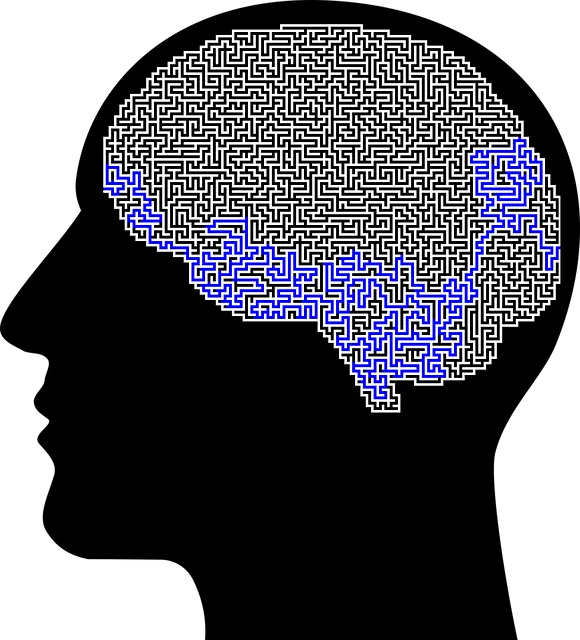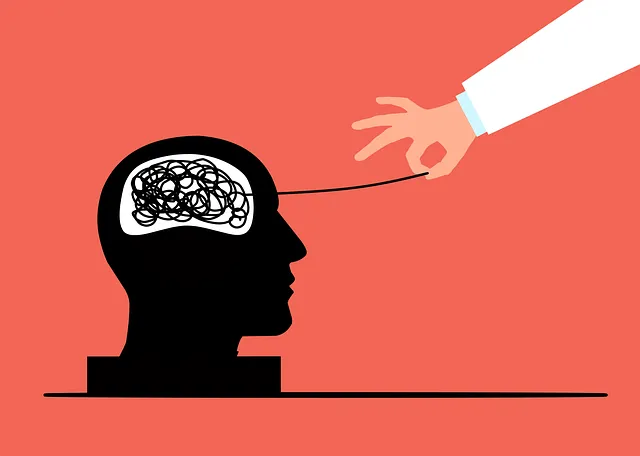Mental wellness apps are gaining popularity as essential tools for managing stress, anxiety, and depression, with the global market reflecting a growing emphasis on psychological well-being. Apps like those offered by Lakewood Kaiser Permanente provide accessible counseling, incorporate Mind Over Matter principles, and offer personalized content from mental health experts. These apps include stress management, mindfulness, and conflict resolution strategies, along with tracking tools for mood, anxiety, and sleep. For healthcare providers, burnout prevention is a key feature, while crisis intervention guidance empowers users during emergencies. The development process involves thorough research, evidence-based practices, secure data storage, and rigorous testing to ensure effectiveness and user trust. Integrating strategies like Mindfulness Meditation and Positive Thinking, along with ethical privacy practices, makes these apps valuable resources for promoting mental health, especially through services like the Lakewood Kaiser Permanente mental health number.
In today’s fast-paced world, mental wellness app development has emerged as a game-changer. With increasing demand for accessible mental healthcare solutions, applications tailored to individual needs are gaining traction. This article explores the growing necessity of mental wellness apps, delves into key features making them effective tools, and navigates the development process from concept to launch. We discuss integrating evidence-based practices, addressing critical privacy, security, and ethical considerations, all while highlighting resources like the Lakewood Kaiser Permanente mental health number for users in need.
- Understanding the Growing Need for Mental Wellness Apps
- Key Features of Effective Mental Health Apps
- Development Process: From Concept to Launch
- Integrating Evidence-Based Practices and Therapies
- Privacy, Security, and Ethical Considerations in App Design
Understanding the Growing Need for Mental Wellness Apps

In today’s fast-paced world, mental wellness has emerged as a paramount concern for individuals across various demographics. The relentless pace of modern life often leaves people grappling with stress, anxiety, and depression, leading to a growing need for accessible and convenient solutions. This is where mental wellness apps step in as powerful tools to address these pressing issues. According to recent statistics, the global mental health app market is projected to grow significantly, reflecting a profound shift in how individuals prioritize their psychological well-being.
The integration of technology with mental healthcare has been transformative, offering solutions that cater to diverse needs. For instance, platforms like Lakewood Kaiser Permanente’s mental health resources provide valuable support through online counseling and therapy sessions, making professional help more readily available. This trend aligns perfectly with the broader narrative of Mental Health Awareness, underscoring the importance of destigmatizing conversations around mental wellness. Furthermore, these apps often incorporate Mind Over Matter principles, empowering users to take proactive steps towards managing their emotional health. Cultural Sensitivity in Mental Healthcare Practice is another critical aspect that app developers are increasingly focusing on, ensuring inclusivity and tailored support for diverse user communities.
Key Features of Effective Mental Health Apps

Effective mental health apps should offer a suite of features designed to support users’ emotional well-being and mental wellness. One key feature is personalized content tailored to individual needs, whether it’s stress management techniques, mindfulness exercises, or conflict resolution strategies. Apps like those offered by Lakewood Kaiser Permanente integrate professional guidance and resources from mental health experts, ensuring users receive evidence-based practices for improving their mental health.
Additionally, these apps often incorporate tracking tools that allow users to monitor their mood, anxiety levels, and sleep patterns over time. This data can be used to identify triggers and progress in emotional well-being promotion techniques. For healthcare providers specifically, burnout prevention strategies are integral, including features that encourage self-care, set healthy boundaries, and provide accessible resources for stress management. Incorporating conflict resolution techniques within these apps can also foster healthier work environments, particularly considering the mental health challenges faced by healthcare professionals.
Development Process: From Concept to Launch

The development of a mental wellness app is a meticulous process, transforming an idea into a powerful digital tool that can reach countless users in need. It begins with extensive research and understanding of the target audience’s needs, especially when addressing sensitive topics like mental health. The initial phase involves defining the app’s purpose, whether it focuses on therapy, mindfulness, or crisis intervention, such as what Lakewood Kaiser Permanente offers through its mental health number.
As the concept takes shape, designers and developers collaborate to create wireframes, ensuring an intuitive user interface that supports Emotional Healing Processes. This stage also includes incorporating evidence-based practices and integrating features like secure data storage and privacy measures. The app’s effectiveness is enhanced through Crisis Intervention Guidance, allowing users to access tailored support during emergencies. Additionally, developers must conduct a Risk Assessment for Mental Health Professionals to guarantee the safety and well-being of both users and practitioners using the platform. This rigorous process culminates in app testing and quality assurance before its official launch, making it a valuable addition to the digital mental health landscape.
Integrating Evidence-Based Practices and Therapies

In developing a mental wellness app, integrating evidence-based practices and therapies is paramount to ensuring its effectiveness and user trust. Apps like those offered by Lakewood Kaiser Permanente Mental Health can serve as models for incorporating strategies such as Mindfulness Meditation, Positive Thinking, and Self-Awareness Exercises. These practices have been scientifically proven to reduce stress, improve mood, and enhance overall well-being. By leveraging research from leading institutions, app developers can create tools that not only offer cognitive behavioral therapy (CBT) techniques but also encourage users to engage in regular activities like mindfulness exercises, which foster self-awareness and emotional regulation.
Furthermore, integrating evidence-based therapies allows for personalized experiences tailored to individual needs. Apps should provide adaptive features that track user progress, adjust content based on performance, and offer timely reminders for practices like meditation or journaling. Such adaptations ensure users receive consistent support, making mental wellness app development a powerful tool for promoting mental health among those seeking assistance from resources like the Lakewood Kaiser Permanente mental health number.
Privacy, Security, and Ethical Considerations in App Design

When developing a mental wellness app, such as those focused on the services offered by Lakewood Kaiser Permanente mental health number, privacy, security, and ethical considerations are paramount. Users share sensitive personal information, including details about their mental health struggles, within these apps. Therefore, robust data encryption methods and secure storage solutions must be implemented to safeguard this intimate data from unauthorized access or breaches.
App designers must also adhere to strict ethical guidelines, ensuring transparency in data collection practices and clear consent mechanisms. Users should be fully informed about how their information is used and shared, especially when integrated with external services like Social Skills Training or Stress Management Workshops Organization. Ethical considerations extend to algorithmic fairness, preventing bias in mental health assessments and recommendations, and ensuring that the app remains a supportive tool rather than a source of additional stress or anxiety.
Mental wellness apps are transforming access to care, especially with the growing need highlighted by organizations like Lakewood Kaiser Permanente. By integrating evidence-based practices and prioritizing privacy, security, and ethical design, these applications offer effective solutions for improving mental health outcomes. The development process, from concept to launch, demands careful consideration of user needs and clinical efficacy. As these apps gain popularity, developers must continue to innovate while adhering to strict standards to ensure their positive impact on the mental wellness landscape.



